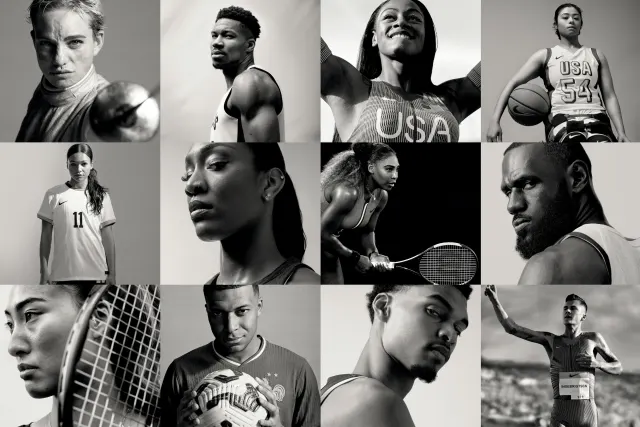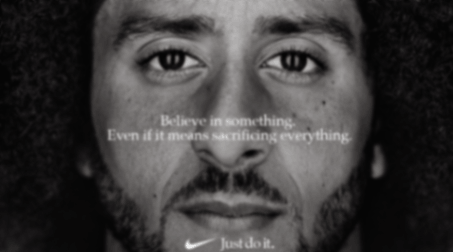‘Winning Isn’t for Everyone’ – a Nike’s Strategy or Big Mistake?

In support of the greatest athletic performances in 2024, Nike unveiled its 2024 ad campaign, “Winning isn’t for everyone, ” to amplify the energy ahead of the Paris Olympics. True to form, the campaign sparked widespread conversation, splitting consumers into two bodies: supporters and critics.
Stepping into the debate, Nike’s Chief Marketing Officer, Nicole, defended the campaign as a celebration of athletes’ voices raw, diverse, and authentic. But it raises an intriguing question: Whose stories are we genuinely celebrating? Is it the champions at the podium or the relentless underdogs striving for their moment in the spotlight?
Without further ado, this post dissects the marketing impression behind this campaign, exploring its impact and audience reception. We’ll even draw some comparisons with a standout campaign from Nike’s past to add perspective.
Nike’s 2024 Campaign Objectives
There’s just something about winning, like fulfilling one’s self.
It is like a pure joy of nailing it, whether a dance, a shout, or just throwing your arms in the air. It’s the ultimate “Yes, I did it!” moment.
For decades, Nike has tapped into this exact vibe of enduring spirit. They’re not just about sports; they’re about making every win, big or small, feel like it’s wrapped in a gold medal and fashionable, too.
Nike mastered the art of blending game-changing sports innovation with a side of cool, and their 2024 campaign took this to a whole new level.
The campaign wasn’t just about winning but celebrating the mindset behind the win. It came at the perfect time, too, right when the Olympics had the whole world buzzing about victory, perseverance, and dreams in overdrive.
Nike didn’t just cheer from the sidelines; they went straight into the hearts of athletes and fans, reminding everyone to “Just Do It.”
This campaign had its sights set on three big groups:
- Aspiring Champions: For the dreamers in the gym or on the track, Nike’s message was clear: keep testing your limits; you’re on the path to greatness.
- Die-Hard Sports Fans: With high emotions during the Olympics, Nike gave fans something to shout about, connecting their favorite victories with the brand.
- General public: The campaign got people talking even if sports aren’t your thing. It tapped into the ideal of striving for success or failure.
By keeping the conversation going across all these groups, Nike stayed in the spotlight, not just as a brand but as a marketing icon.
The Brand on Social Media Platforms
Despite the controversy, one would say that with the faces of legends in the industry, such as Kobe Bryant, Kylian Mbappé, and Serena Williams, the campaign would soar with strong impressions from the fanbase.
The opposite happened with the engagement as viewers gravitated towards their other two campaigns of 2024, as the women’s basketball campaign outperformed it by 42% and Mbappé’s featured campaign beat it by 140%.
Nike’s reliance on legacy athletes and the exclusivity in its messaging may have played a role in its mixed reception.
The phrase “Winning isn’t for everyone” resonated with some but alienated others who felt it reinforced an elite, almost dismissive tone.
With a younger audience increasingly favoring inclusivity and relatability over legacy and dominance, Nike may need to reconsider how it frames competition and aspiration in its future campaigns.
Nike’s Past Successes and the Lessons from 2024
To put things in perspective, let’s take a trip down memory lane.
In 2020, Nike launched “You Can’t Stop Us,” an ad that masterfully blended powerful split-screen visuals, celebrating unity, resilience, and the perseverance of athletes across different sports and backgrounds.
The ad received widespread praise, amassing millions of views and engagement across platforms, as it captured the universal struggle and triumph of athletes.
Then, in 2018, Nike launched the controversial “Believe in Something” campaign featuring Colin Kaepernick, which took a bold stand on social justice.
While it faced backlash in some circles, it ultimately strengthened Nike’s brand identity and deepened its loyalty among younger, socially conscious consumers.
A key takeaway emerges when comparing these past campaigns to 2024, Nike’s strongest campaigns have always had an emotional, inclusive, and deeply human element. “You Can’t Stop Us” united everyone under the banner of perseverance, while “Believe in Something” tapped into a cultural moment larger than sports.
In contrast, “Winning Isn’t for Everyone” leaned into exclusivity, which didn’t sit well with a segment of Nike’s global audience.


The Future of Nike’s Branding
Nike thrives on cultural conversations.
They push boundaries, sometimes to applause, to backlash, but never to silence.
If there’s one takeaway from this year’s campaign, audiences are evolving, and brands must evolve with them.
Looking ahead, Nike must balance its historic appeal to elite athletes with a broader narrative that speaks to everyday dreamers.
The question isn’t whether Nike can still inspire. It’s whether they can make inspiration feel personal again, as the world will be watching now more than ever.
You should also check out Mercedes’ automobile marketing strategies for more reading.